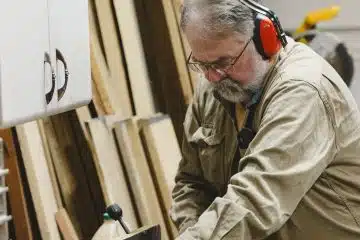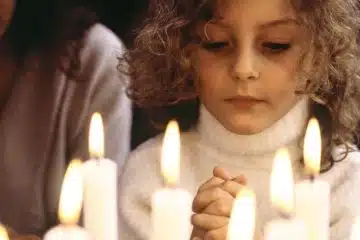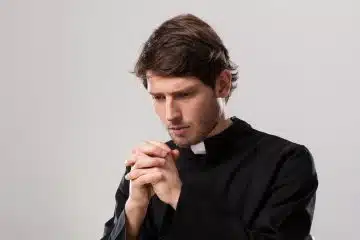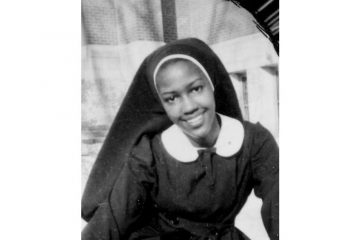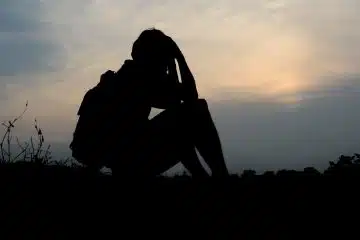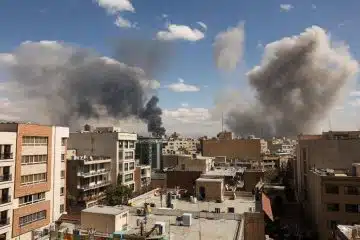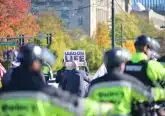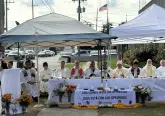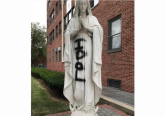Supreme Court ruling allows prayers before public meetings
By Carol Zimmermann Catholic News Service
WASHINGTON — The Supreme Court ruled May 5 that prayers said before town council meetings in Greece, N.Y., do not violate the Constitution.
In their 5-4 decision, the judges noted a historical precedent to opening local legislative meetings with a prayer and stressed that the predominantly Christian nature of the prayers in the New York town were not coercive to those in attendance.
Justice Anthony Kennedy, writing for the majority, said the prayers delivered before public meetings in Greece, a suburb of Rochester, “evoked universal themes” such as “calling for a ‘spirit of cooperation.'”
He also noted the historical precedence of such prayers, pointing out that the U.S. House and Senate have official chaplains and a majority of the states have the practice of legislative prayer.
Kennedy wrote that the “inclusion of a brief, ceremonial prayer as part of a larger exercise in civic recognition suggests that its purpose and effect are to acknowledge religious leaders and the institutions they represent, rather than to exclude or coerce nonbelievers.”
He said that unless the prayers “over time denigrate, proselytize or betray an impermissible government purpose” they will “not likely establish a constitutional violation.” He also wrote that because the town had followed a policy of nondiscrimination it was not required by the Constitution to search beyond its borders for those who could offer non-Christian prayers in an attempt to provide balance.
Public prayers have been offered in Greece by local clergy members before town council meetings since 1999. In 2008, two residents sued the town arguing that the prayers violated the Establishment Clause of the First Amendment of the Constitution.
Since the lawsuit, the town has made an effort to invite a variety of faith leaders to present these prayers but the 2nd U.S. Circuit Court of Appeals in 2012 found the prayer practice unconstitutional and emphasized that the majority of the prayers were specifically Christian.
The appeals court said the Supreme Court’s 1983 ruling in Marsh v. Chambers — where it upheld the Nebraska Legislature’s practice of opening its legislative sessions with a prayer as part of a deeply embedded tradition — did not apply because the town council meetings in Greece are not just for elected officials but local residents.
In the Marsh ruling, Chief Justice Warren Burger described opening prayers as “part of the fabric of our society.” The ruling only prohibited prayers that would advance or disparage a particular religion.
Justice Elena Kagan, writing the dissent in the Greece v. Galloway case, said the case before the court differed from the Marsh ruling because “Greece’s town meetings involve participation by ordinary citizens, and the invocations given — directly to those citizens — were predominantly sectarian in content.”
The majority opinion May 5 relied on the Marsh decision, pointing to the historical precedence of opening legislative sessions with prayer and the reluctance of the government to supervise or censor such prayers.
John Vile, dean of the University Honors College at Middle Tennessee State University and co-editor of The Encyclopedia of the First Amendment, said all the justices were “respectful both of prayers in general and of religious diversity.”
He said the majority “appeared to recognize that undue scrutiny of prayers by public officials was more likely to lead to establishment issues than opening invitations to individuals from diverse denominations.”
Vile told Catholic News Service he found it interesting that none of the justices sought to overturn the Marsh decision nor did they stress the 1971 case, Lemon v. Kurtzman, in which the Supreme Court allowed prayer if it passed a three-pronged test: It has a secular purpose, its primary effect “neither advances nor inhibits religion,” and it does not excessively entangle government with religion.
He said if he were a town council member reading the Greece v. Galloway decision, he would make sure that participants offering ceremonial prayers be as religiously diverse as possible.
“If there is a synagogue or mosque in town, it would be wise to make sure” representatives from those faiths are included, he said.
Story posted May 6, 2014


